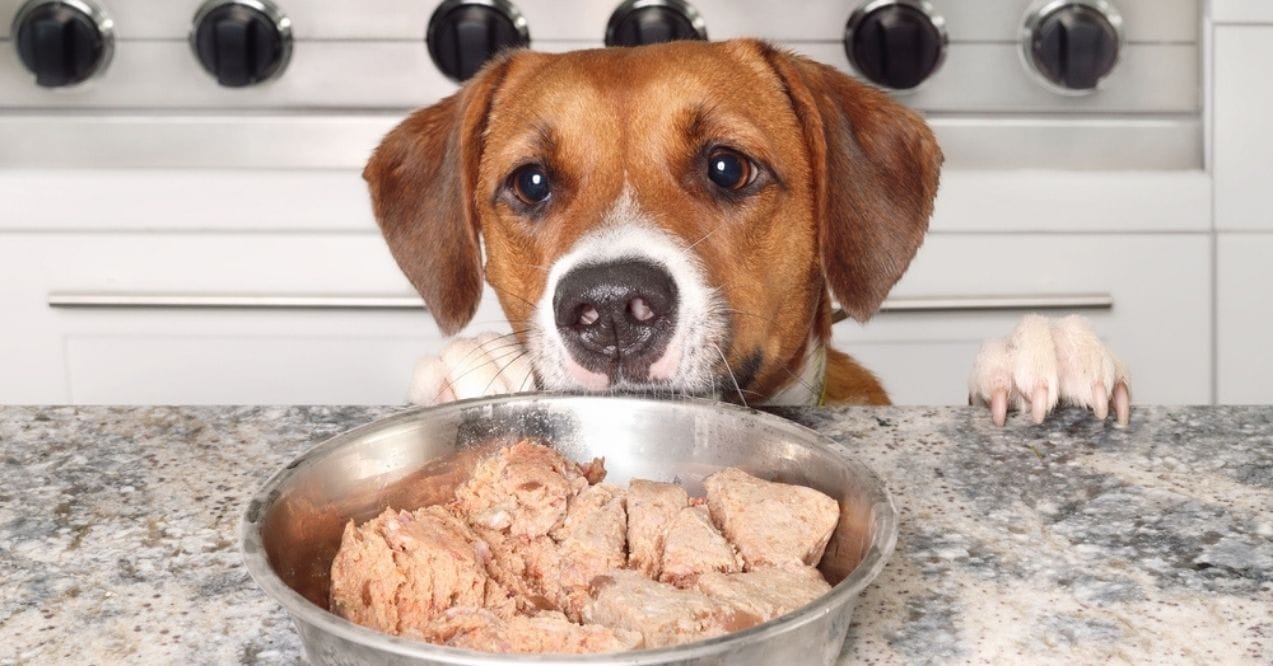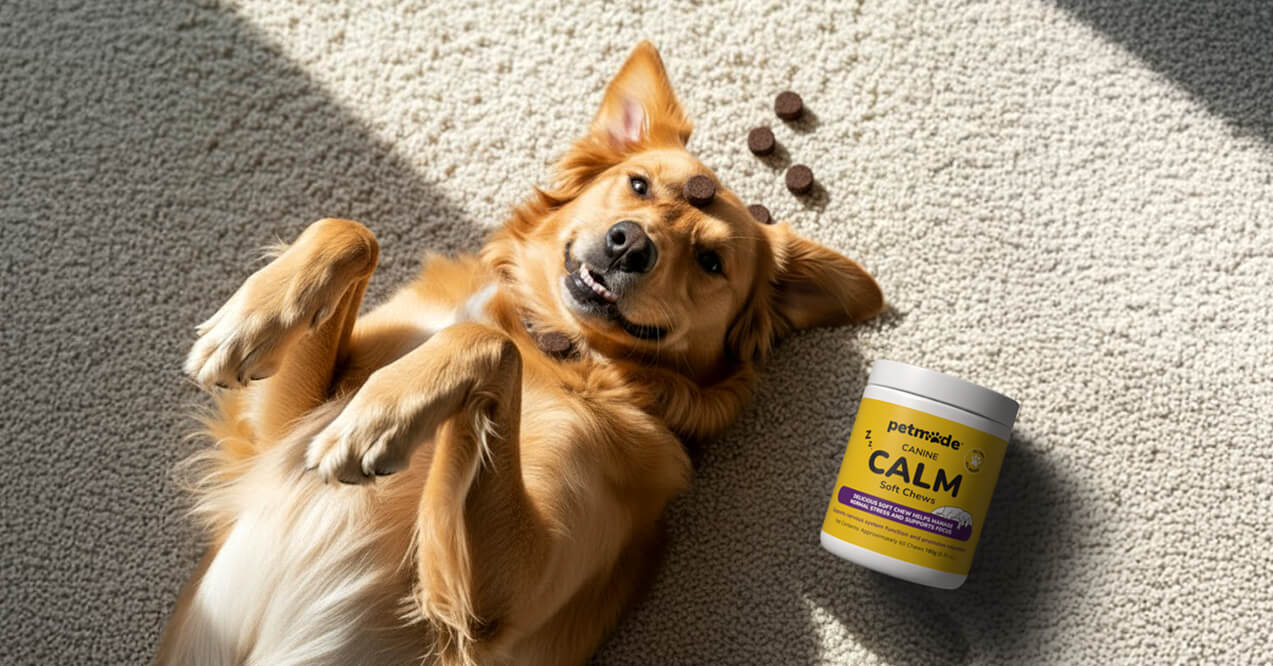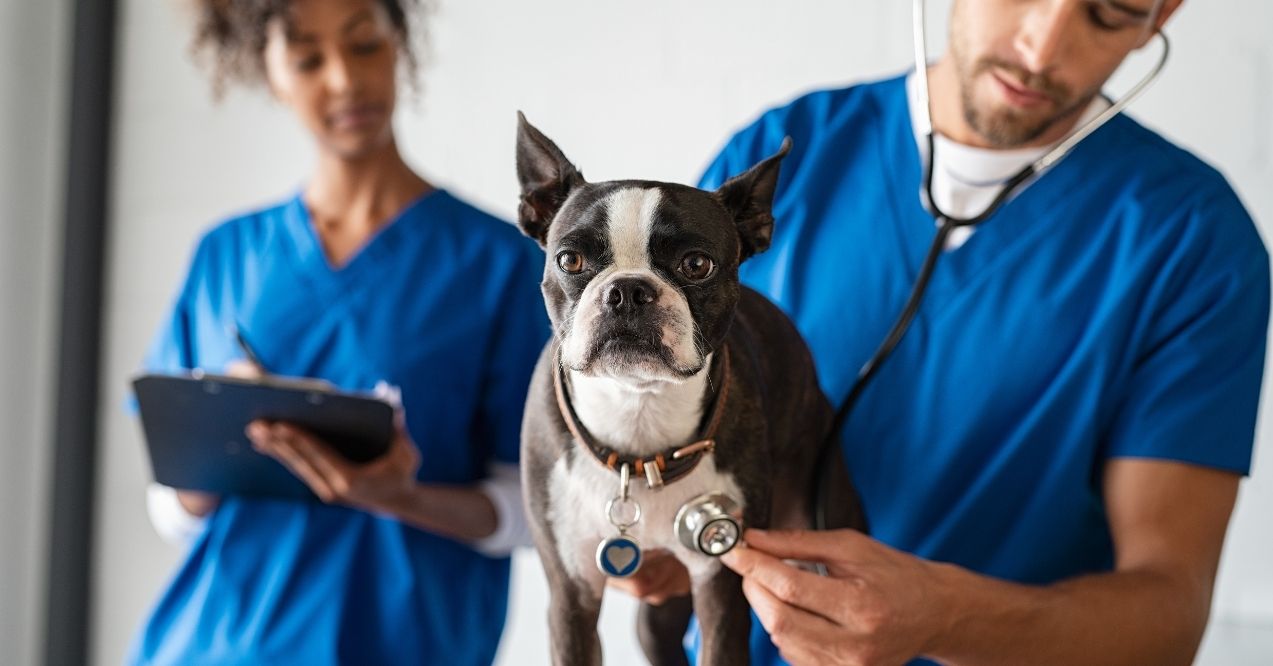How to Help a Dog’s Upset Stomach
Understanding how to help a dog’s upset stomach is essential for any pet owner who wants to ensure their furry friend’s comfort and well-being. Digestive issues are common in dogs and can range from mild discomfort to more worrisome symptoms. When your dog isn’t feeling their best, it can be just as distressing for you as it is for them.
The good news? With timely care and thoughtful attention, you can effectively support your dog’s recovery and overall digestive health. This guide provides practical, evidence-based tips to help you navigate these moments with confidence, keeping your pup happy and healthy.
Early Signs of Upset Stomach
Caring for a dog with an upset stomach can be challenging, especially when symptoms aren’t immediately obvious. Many pet owners are familiar with vomiting or diarrhea as clear signs of upset stomach in dogs. However, subtler behavioral and physical changes often go unnoticed. Recognizing these early signs is key to understanding how to help my dog’s upset stomach effectively and prevent more serious issues.
Behavioral Changes Across Breeds
Dogs exhibit discomfort in unique ways, and these behaviors can vary depending on breed, size, and age. Recognizing breed-specific behavioral changes is vital when considering the signs of an upset stomach.
- Small Breeds – Smaller dogs, like Chihuahuas or Dachshunds, may become clingy or exhibit trembling when experiencing stomach discomfort. These behaviors often stem from their heightened sensitivity to pain or stress.
- Large Breeds – Larger dogs, such as Labrador Retrievers or German Shepherds, may show signs of distress by isolating themselves or pacing. These actions could indicate that their stomach upset is causing physical unease.
- Puppies vs. Senior Dogs – Puppies might whine excessively, refuse food, or appear restless when they feel unwell, while senior dogs often display subtle lethargy or changes in posture to reduce discomfort.
Pay attention to these breed-specific cues to determine whether your dog might be experiencing stomach discomfort.
Lethargy, Restlessness, and Grooming
Sometimes, a dog’s upset stomach manifests through behavioral shifts that are easy to overlook:
- Lethargy – Dogs experiencing digestive distress may suddenly become less active, showing reluctance to engage in activities they usually enjoy. This can indicate internal discomfort or dehydration.
- Nighttime Restlessness – A dog with an upset stomach may have trouble settling down at night, frequently changing positions or pacing. This restlessness is often due to abdominal cramping or nausea.
- Excessive Grooming – Unusual licking or chewing – especially around the belly or paws – can signal digestive discomfort. Dogs instinctively groom these areas to self-soothe when they feel unwell.
If you notice these behaviors persisting, it may be time to explore how to calm a dog’s stomach with simple remedies or seek veterinary advice.
Vomiting and Stool Analysis
Vomiting and changes in stool are among the more apparent indicators of a digestive issue, but their specifics can reveal the underlying cause.
Types of Vomit
- Bile – Yellow or green vomit usually indicates an empty stomach or acid buildup.
- Undigested Food – Vomiting soon after eating may suggest indigestion or overeating.
- Foamy Liquid – This often signals an irritation of the stomach lining.
Stool Consistency
- Normal vs. Loose – Loose stools may signal mild stomach upset, while mucus or blood requires immediate attention.
- Frequency – Increased frequency could indicate dietary intolerance or a gastrointestinal infection.
Monitoring these changes closely can help determine the severity of your dog’s stomach upset and guide you in choosing appropriate remedies or seeking veterinary care.
Remedies for a Dog’s Upset Stomach

When considering how to help a dog’s upset stomach, taking quick and effective action may help ease their discomfort. This first-response guide outlines simple steps to follow within the first 24 hours, focusing on tailored fasting, hydration, and easy-to-digest foods.
Tailored Fasting
Fasting can give a dog’s digestive system the time it needs to recover. For healthy adult dogs, a 12-24 hour fast allows their stomach to settle and reduces the strain on digestion. Smaller breeds may require shorter fasting periods due to their faster metabolism, while larger breeds often tolerate longer fasting times.
However, fasting isn’t suitable for puppies, senior dogs, or those with preexisting conditions, as it may cause more harm than good. Always ensure your dog has access to fresh water during this period. Fasting is one of the simplest approaches when learning how to soothe a dog’s stomach, setting the stage for recovery.
Hydration
Hydration is vital when your dog has an upset stomach, but it’s best to keep it simple and gradual. Ice cubes can encourage slow sipping and help prevent gulping, which might aggravate their stomach. Options like diluted bone broth or chamomile tea can also keep them hydrated while being gentle on their digestive system.
If your dog has lost fluids, consider offering an electrolyte solution designed for pets to maintain balance. Always monitor their intake to avoid over-hydration and consult a veterinarian if signs of dehydration appear.
Easy-to-Digest Foods
If fasting isn’t feasible, transitioning to bland and easily digestible foods can help alleviate your dog’s upset stomach. Boiled white fish or scrambled eggs provide gentle proteins, while carbohydrates like plain, cooked white rice are excellent options for firming stools and restoring energy.
If you’re looking for more dietary solutions, including safe foods and supplements, check out what can I give my dog for an upset stomach.
Many pet owners ask, can dogs have rice? Yes, plain, cooked white rice is often recommended for dogs with upset stomachs as it’s easy to digest and can help bind stools. However, introduce these foods gradually in small portions to avoid overwhelming your dog’s sensitive stomach.
What Helps a Dog’s Upset Stomach?
When your dog is experiencing digestive discomfort, knowing how to help a dog’s upset stomach is essential for providing relief and promoting recovery. Let’s explore some of the best dietary options to support their stomach health.
1. Soothing Foods

When your dog’s stomach is upset, introducing easily digestible proteins and carbohydrates can help calm their digestive system and support recovery. These foods are gentle yet nourishing, making them ideal for dogs experiencing digestive discomfort.
Lean Proteins
Lean proteins such as chicken, turkey, scrambled eggs, and white fish are excellent options for dogs with sensitive stomachs. These proteins supply essential nutrients without overwhelming their digestion.
Preparation tips
- Boil or steam proteins without adding any seasonings, oils, or fats.
- Remove bones and skin to eliminate choking hazards and excess fat.
If you’re wondering, can dogs eat chicken, the answer is yes – but it should always be plain, fully cooked, and served in small portions to ensure it’s gentle on their stomach.
Fiber-Rich Carbs
Carbohydrates like white rice, sweet potatoes, and pumpkin are vital for regulating digestion and reducing inflammation. These fiber-rich options can address different needs:
- White Rice – Helps bind stools and is easy to digest, making it suitable for dogs with diarrhea.
- Sweet Potatoes – Provide gentle energy and fiber, ideal for dogs needing extra nutrients. If you’re wondering are potatoes good for dogs, plain cooked potatoes without any seasoning can be a soothing option.
- Pumpkin – Known for its high fiber content, pumpkin is especially effective at regulating stool consistency and soothing the digestive tract.
Oats and Oatmeal
Oatmeal offers a gentle fiber source that supports digestion and soothes upset stomachs. To prepare, cook plain oats in water, avoiding milk, sugar, or additives. Portion sizes should match your dog’s size, with smaller dogs requiring only a tablespoon, while larger breeds may need up to a quarter cup. Incorporating oatmeal regularly can promote long-term digestive health.
Baby Food
Baby food, such as plain chicken, sweet potato, or pumpkin purees, can be a helpful option when dogs refuse solid food. Can dogs eat baby food? Yes, but always check for harmful ingredients like onion, garlic, or spices. However, this is a temporary solution and should not replace meals long-term.
2. Hydration

Hydration plays a crucial role in helping your dog recover from an upset stomach. Maintaining proper fluid intake not only prevents dehydration but also soothes the digestive system.
Bone Broth
Bone broth, when prepared correctly, it’s a powerful hydration tool. It provides essential nutrients while soothing an upset stomach. To make dog-safe bone broth:
- Use plain bones (chicken, turkey, or beef) and simmer them in water for several hours.
- Avoid adding harmful ingredients like onions, garlic, or excess salt.
- Strain the broth to remove all bones and fat before serving.
For those wondering, is bone broth good for dogs? It’s an excellent choice when prepared without harmful additives like onions or garlic. Maintaining electrolyte balance is also essential, particularly if your dog refuses water. However, avoid over-hydration, which can lead to bloating and additional discomfort.
Chamomile Tea
Chamomile contains compounds like apigenin that have calming and anti-inflammatory effects on the digestive system. To prepare chamomile tea for dogs:
- Brew one chamomile tea bag in a cup of hot water and let it steep for 5-10 minutes.
- Cool the tea to room temperature before serving.
For reluctant drinkers, freeze the tea into ice cubes or mix it with bone broth. Chamomile not only aids in digestive discomfort but also helps ease anxiety, making it a versatile remedy for dogs with upset stomachs.
3. Restoring Gut Health

Once your dog’s stomach begins to settle, the next step is to restore balance in their digestive system. Supporting gut health with targeted remedies can improve digestion and reduce the chances of future stomach issues.
Probiotics
Probiotics are beneficial bacteria that help maintain a healthy balance in your dog’s gut flora. They aid digestion by enhancing nutrient absorption and promoting regular bowel movements. Probiotics can also boost the immune system, making your dog more resilient to digestive disruptions in the future.
If you’re unsure whether your dog could benefit from probiotics, check out signs your dog needs probiotics to recognize common indicators of gut imbalance.
Sources of probiotics for dogs:
- Plain Yogurt – Choose unsweetened, unflavored yogurt without artificial sweeteners like xylitol, which is toxic to dogs. Start with a small spoonful, adjusting the portion size to your dog’s weight.
- Kefir – A fermented milk product, kefir is rich in probiotics and generally well-tolerated by dogs. Opt for plain, unsweetened kefir.
- Supplements – These are formulated to provide the right strains of probiotics for canine health. Look for supplements with clear labeling and recommendations for dosing based on your dog’s size.
Digestive Enzymes
Digestive enzymes can be the best thing for a dog to support its gut naturally during recovery. These enzymes help break down food into smaller, more absorbable components, making digestion easier, particularly for dogs that struggle with certain foods.
Enzyme supplements are widely available and can be sprinkled onto your dog’s meals. Look for products specifically formulated for dogs, containing enzymes like amylase, lipase, and protease. These supplements are especially helpful for dogs recovering from gastrointestinal distress or those prone to food sensitivities.
4. Specialty Digestive Aids
For dogs with more persistent digestive discomfort, targeted remedies can provide additional relief and long-term support. These natural options address specific issues and complement other strategies to promote overall gut health.
Slippery Elm and Marshmallow Root
Slippery elm and marshmallow root are renowned for their mucilage properties, which create a protective coating along the digestive tract. This coating soothes irritation, making these herbs effective for issues like ulcers and inflammatory bowel discomfort.
How to prepare slippery elm gruel
- Mix 1 teaspoon of slippery elm bark powder with 1 cup of warm water.
- Stir until it forms a smooth, gel-like consistency.
- Serve in small amounts based on your dog’s size (consult your vet for dosage).
This gentle dog upset stomach remedy can offer relief for recurring or severe digestive problems.
Ginger
Ginger is a natural anti-nausea aid that helps settle your dog’s stomach. It’s effective in various forms:
- Powdered – Add a pinch to their food for smaller dogs.
- Fresh – Steep a small slice in water to create a mild tea.
- Treats – Ginger-infused dog treats are a convenient option.
Remember, introduce ginger gradually to ensure your dog tolerates it well.
Chia Seeds
Chia seeds help firm stools by absorbing excess fluid, making them an excellent remedy for diarrhea. They’re also a rich source of omega-3 fatty acids, supporting gut health and overall well-being.
Preparation tips
- Soak the seeds in water or broth to create a gel-like consistency.
- Feed small amounts:
- Small dogs: ½ teaspoon.
- Larger dogs: 1 teaspoon.
Chia seeds are not only what helps a dog’s upset stomach but are also easy to incorporate into their meals, making them a versatile addition to your dog’s routine.
Supporting Digestive Health in a Long-Term
Maintaining your dog’s digestive health over the long term requires a proactive approach focused on prevention and sustainable habits. By incorporating high-fiber foods, omega-3 fatty acids, probiotics, and regular exercise into your dog’s routine, you can promote a healthy gut and reduce the risk of future digestive issues.
High-Fiber Foods for Regularity
Fiber plays a vital role in supporting regular bowel movements and preventing digestive discomfort. Beyond addressing immediate symptoms, a fiber-rich diet helps regulate stool consistency and reduces the risk of both constipation and diarrhea over time.
Safe and versatile options like green beans and carrots are excellent additions to your dog’s daily diet. These vegetables are rich in natural fiber and gentle on the stomach, making them suitable for long-term use.
Tips for introducing fiber
- Add small amounts of cooked, plain vegetables to your dog’s meals.
- Gradually increase the portion size over several days to prevent digestive upset.
- Monitor your dog’s stool consistency to ensure the adjustment is beneficial.
Omega-3 Fatty Acids for Reducing Inflammation
Omega-3 fatty acids, found in fish oil, flaxseed, and certain supplements, are well-known for their anti-inflammatory properties. These nutrients can help manage gastrointestinal irritation and support overall digestive function.
Adding a teaspoon of fish oil to your dog’s food or sprinkling ground flaxseed on their meals are practical ways to incorporate omega-3s. For convenience, omega-3 supplements designed specifically for dogs can provide measured doses tailored to their needs. Regular intake of these nutrients can help maintain a healthy gut environment and reduce inflammation over time.
Consistent Probiotic Integration
Probiotics are essential for maintaining balanced gut flora and supporting immune function. Consistent use of probiotics helps prevent imbalances that could lead to digestive upset. If you’re wondering, can dogs eat yogurt consistently, the answer is yes – as long as it’s plain, unsweetened, and free of artificial sweeteners like xylitol, which is toxic to dogs. The beneficial bacteria in yogurt can help restore the natural balance of the digestive system, especially after episodes of stomach upset.
How Exercise Helps Digestion
Physical activity plays a crucial role in digestive health by stimulating the digestive system, reducing bloating, and promoting regular bowel movements. Regular exercise helps keep your dog’s gut functioning smoothly, preventing issues like constipation.
Activity suggestions
- For active breeds, longer walks, running, or play sessions are ideal.
- Smaller or less active breeds benefit from shorter walks or gentle games.
- Senior dogs may thrive with low-impact activities like swimming or slow strolls.
When to See a Vet

While home remedies can often help alleviate a dog’s upset stomach, there are times when professional veterinary care is essential. Recognizing these warning signs can ensure your dog receives timely and appropriate treatment for more serious conditions.
Blood in Stool or Vomit
Blood in your dog’s stool or vomit is a critical sign that should never be ignored. Unlike mild digestive issues, such as occasional loose stools or a single episode of vomiting, blood indicates possible damage to the gastrointestinal tract. This could result from ulcers, infections, or even ingesting toxic substances. If you notice bright red blood (indicating fresh bleeding) or dark, tar-like stool (indicating internal bleeding), seek immediate veterinary care. Early intervention can prevent further complications.
Persistent Vomiting or Diarrhea Beyond 24 Hours
Prolonged vomiting or diarrhea can lead to rapid dehydration, which is especially dangerous for puppies, seniors, or dogs with preexisting health conditions. If your dog continues to exhibit these symptoms for more than 24 hours despite home remedies, a vet visit is necessary. Persistent digestive issues may indicate underlying problems such as infections, pancreatitis, or organ dysfunction, requiring professional diagnosis and treatment.
Changes in Behavior and Energy Levels
A sudden or lasting change in your dog’s behavior or energy levels can signal a deeper gastrointestinal issue. Dogs experiencing blockages or infections often become lethargic, avoid food, or display unusual postures to reduce discomfort. If your dog shows these signs along with other symptoms, such as vomiting or abdominal bloating, consult a veterinarian promptly to rule out serious conditions.
Conclusion
Knowing how to help a dog’s upset stomach is essential for ensuring their comfort and health. By recognizing early signs, providing soothing foods, maintaining hydration, and incorporating long-term digestive health strategies like probiotics and omega-3s, you can effectively support your dog’s recovery.
While home remedies can work for minor issues, always monitor symptoms closely and consult a veterinarian when necessary, especially if serious signs like blood in stool or persistent vomiting appear. A proactive approach to digestive health helps prevent future problems, ensuring your furry friend stays happy, active, and well-nourished for years to come.
Feed your dog bland, easily digestible foods like boiled chicken, white rice, or plain pumpkin. Avoid seasonings, oils, or fatty foods, and introduce small portions gradually to prevent further irritation.
For healthy adult dogs, fasting for 12-24 hours allows the digestive system to rest. Avoid fasting puppies, seniors, or dogs with health conditions, as they need more frequent nourishment. Always provide access to fresh water.
Visit the vet if symptoms like blood in stool, persistent vomiting, diarrhea lasting over 24 hours, lethargy, or behavior changes occur. These may signal serious issues requiring professional intervention. Early action ensures proper care.
Advertisement. This site offers health, wellness, fitness and nutritional information and is designed for educational purposes only. You should not rely on this information as a substitute for, nor does it replace, professional medical advice, diagnosis, or treatment. If you have any concerns or questions about your health, you should always consult with a physician or other health-care professional. Do not disregard, avoid or delay obtaining medical or health related advice from your health-care professional because of something you may have read on this site. The use of any information provided on this site is solely at your own risk.




















